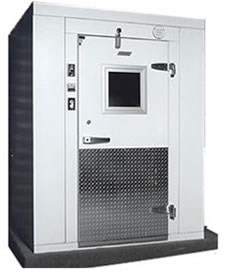Please note: As of January 20, 2021, information in some news releases may be out of date or not reflect current policies.
News Release
Indianhead Biomass Services explosion severely injures 2 workers
ST. AUGUSTINE, Fla. — A second explosion in four months at the Indianhead Biomass Services plant in St. Augustine has left two laborers severely burned. An inspection by the U.S. Department of Labor's Occupational Safety and Health Administration found that two men in their 50s attempted to shut down a sawdust dryer to unclog an outlet vent. This created an explosive environment when smoldering embers ignited the sawdust inside the dryer. Employed at the plant for a year, the men usually did concrete work, but were recently assigned to operate the wood pellet mill dryer. Indianhead Biomass Services is a solid waste disposal facility and processing plant.
 |
Indianhead Biomass Services plant in St. Augustine, Florida, where two explosions occurred in March and July 2014, injuring four workers. |
OSHA issued eight safety citations to the employer following the second explosion on July 29, 2014. Proposed penalties total $91,000. The first explosion in March 2014 permanently disabled one worker and another suffered a leg injury while making modifications to a wood gas heat exchanger. As a result of its inspection after the first explosion, OSHA issued the company two willful and seven serious violations in August 2014.
"At the time of this investigation, the employer had another open OSHA inspection from a previous industrial explosion that left two other employees injured. The employer was aware of the requirements for a proper system design and for protecting workers from amputations, but neglected to enact necessary safety measures," said Brian Sturtecky, OSHA's area director in Jacksonville. "The result was a workplace that endangered all the employees and caused another tragic incident."
OSHA issued the employer a willful citation for failure to design and implement fire and explosion protective measures for the wood pellet processing system. A willful violation is one committed with intentional, knowing or voluntary disregard for the law's requirement, or with plain indifference to worker safety and health.
Indianhead received five serious citations for not developing or implementing a hazard communication plan; failing to ensure that each worker used a lock to protect against machine startup when performing maintenance activities; not providing training to workers on how to remove stored power from equipment and perform services and maintenance safely; and failing to evaluate the workspace to determine if the work area required confined space permits. Other violations included not verifying that a hazard assessment had been performed and not having a respiratory protection program
A serious violation occurs when there is substantial probability that death or serious physical harm could result from a hazard about which the employer knew or should have known.
OSHA inspected Indianhead twice since March 2014 and issued citations for amputation hazards, unsafe crane operation and violations associated with compressed gas.
The company has 15 business days from receipt of its citations and proposed penalties to comply, request a conference with OSHA's area director, or contest the findings before the independent Occupational Safety and Health Review Commission.
The Bureau of Labor Statistics preliminary data from the Census of Fatal Occupational Injuries, fatal work injuries in Florida accounted for 234 of the 4,405 fatal work injuries reported nationally in 2013. Additional details are available at http://www.bls.gov.
To ask questions, obtain compliance assistance, file a complaint or report workplace hospitalizations, fatalities or situations posing imminent danger to workers, the public should call OSHA's toll-free hotline at 800-321-OSHA (6742) or the agency's Jacksonville Area Office at 904-232-2895.
Under the Occupational Safety and Health Act of 1970, employers are responsible for providing safe and healthful workplaces for their employees. OSHA's role is to ensure these conditions for America's working men and women by setting and enforcing standards, and providing training, education and assistance. For more information, visit http://www.osha.gov.
